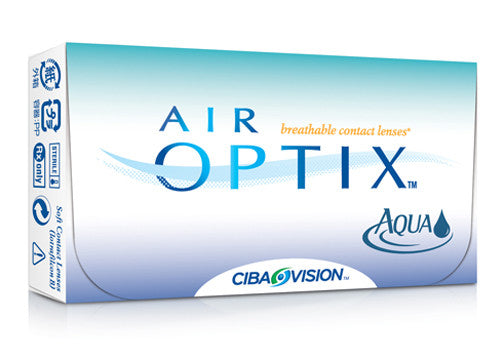
You’re in college and learning all sorts of new things, making friends, working hard, partying (in between dedicated studying, of course) and having amazing experiences. If you wear contact lenses, particularly the fantastic, affordable contact lenses we carry at Fresh Lens, you’re doing all this while seeing clearly.
Now that you’re on your own, you probably have some questions like: Can I reuse disposable lenses? Can I splash around in the pool on spring break with my contacts in? Can I wear my friend’s lenses for a few days if we have the same prescription?
Well, as your favorite destination for online contacts, we have answers to all of these questions and more. Here is our college kids and contact lenses guide to help. To wear your contacts safely and comfortably – and avoid having fire engine red eyes – you shouldn’t:
1. Reuse Daily Contacts to Save Money
You have to buy books, clothes, coffee, late night snacks, concert tickets and all kinds of stuff on a college student budget and while daily disposable lenses are convenient, comfy and the safest type of contact lenses, they are pricier than their monthly and weekly counterparts. To save some dough, can you reuse daily contacts?
Unfortunately, the answer is no way. It can be tempting to reuse disposable lenses and get a few more days out of them but single-use contacts are designed for just that, a single use. You put them in when you wake up and toss them at night. That’s the beauty of them.
The reason they are safer is that since you only wear them for a day, there isn’t time for proteins, calcium, and junk from your tears and the environment to build upon them and increase your chance of infection. They’re not built to withstand the nasty stuff.
There are serious side effects of wearing contacts too long. Daily contact lenses aren’t made from the same material as extended wear contacts and they’re less breathable, so, basically, if you keep on wearing them past the one-day mark, your eyes aren’t getting the oxygen they need.
Your dailies will start to get uncomfortable, which signals to your eyeball that there is a foreign intruder that’s infecting it. The eye then sends cells to fight the lens, damaging the cornea and, ultimately, causing permanent scarring. In the worst case, this scarring occurs in the center of the cornea and leads to permanent vision loss or the loss of the eye.
This extreme scenario is rare but what’s not all that rare is getting a corneal infection that results in some type of corneal scarring, a decrease in visual acuity or, occasionally, the need for a corneal transplant. The pain, missed school, cost of treatment and possibility that you will be rocking glasses forever far outweigh the few bucks you’ll save by reusing dailies.
2. Party so Hard You End Up Sleeping in Contacts
Before a party, set up a system, such as putting your contact lens case on your nightstand, so even if you get a little tipsy, you will remember to take out your contacts before passing out…err falling asleep.
If you wear dailies, write yourself a reminder note and place it somewhere highly visible to avoid leaving contacts in after a night out. Or, if you know there’s going to be a lot of alcohol involved or you’re going to be too tired after a long day and you don’t trust yourself to remove your lenses, wear your glasses that night. Y
ou should always bring along a case filled with solution or an extra pair of daily contacts just in case you end up sleeping out (you can stock up on dailies at Fresh Lens if you’re running low).
The dangers of sleeping in contacts are very real even though the habit seems so harmless. The CDC analyzed contact lens-related cases of corneal infection and found that a high percentage of them occurred from wearing contacts too long or sleeping in them. As we said in our last point, your eyes need oxygen and having contacts in 24/7 doesn’t let them breathe.
When oxygen is limited, the cornea may swell and cracks can form on its surface letting in microorganisms. When you’re sleeping, your eyelids are closed, reducing oxygen even more, and if you have contacts in too, you’re creating a pretty great environment for pathogens to work their way into the cracks.
If this happens, the consequences can range from just plain painful to permanent damage. Inflammation, called keratitis, is uncomfortable though superficial but it can progress into an infection, resulting in a corneal ulcer. The microorganisms then snack on your cornea (yeah, seriously).
While the infection might heal, there will usually be some degree of scarring and permanent damage to your vision. People have lost an eye because of it. So, yes, when your eye doctor talks about vision loss from sleeping in contacts, they’re not just trying to frighten you.
Even if pathogens don’t eat away at your cornea and your eye doesn’t get infected, sleeping in contacts will leave you with less than stellar vision the next day, irritation, discomfort and sensitivity to light.
Plus, they’re harder to remove when you sleep in them because they get dry, so there’s a higher chance you’ll scratch your eye trying to get them out. A night of drinking will compound matters since it’s also dehydrating.
If you just can’t seem to take your contacts out before falling asleep, consider dailies, since they require almost no effort and you can throw them away without even getting out of bed or extended wear options approved for continuous usage.
3. Shower or Go Swimming in Contact Lenses
You’re at a tropical beach on spring break and the ocean is beckoning to you. Before you dive right in, take out those contact lenses! Water isn’t sterile and contacts are porous so they soak up any bacteria, chemicals and microorganisms in it.
When contacts get exposed to water, you’re at risk for Acanthamoeba keratitis, which is an infection that happens when amoebae find their way into your cornea. It can lead to blindness if not treated early. Don’t expose your contacts to water from the ocean, pool, shower, pond, lake, hot tub or any place you can think of and definitely don’t store them in water. While Acanthamoeba keratitis is rare, it does happen.
In the best case, you’ll have dry, irritated eyes after swimming in your contacts. If you do wear them to take a dip, invest in swim goggles and remove them as soon as you get out of the water and let them disinfect for 24 hours or throw them away and put in fresh daily lenses. Also, make a habit of putting contacts in after you get out of the shower.

4. Pull All-Nighters Studying Without Alternating Contacts and Glasses
The side effects of wearing contacts too long that we discussed in our points about partying too hard and sleeping in contacts or reusing dailies also apply to your waking hours. If you’re staying up late studying or hanging out and wearing contacts lenses for all but a few hours, you can still damage your eyes because they won’t be getting enough oxygen.
Plus, you’ll have a build-up of calcium deposits, which is uncomfortable and makes it hard to see clearly. Alternating contacts and glasses is your best bet. Around your usual bedtime, take out your contacts and put on your specs. This will allow you to rest your eyeballs, let your contacts disinfect for the required time, improve your vision and prevent dry eye. In the morning, if your eyes feel fresh, switching from glasses to contacts again is perfectly fine.
5. Share Contact Lenses or Makeup With Your Roommate
Sharing’s cool, especially when it’s with your roommate. Secrets, the contents of mom’s care package and snacks are all fair game but draw the line at sharing contacts or eye makeup. Even if your roommate has the same prescription as you, it doesn’t mean his or her contacts are good for your eyes. When your eye doctor fits you for lenses, they choose a brand and type that suits your eyeball.
This allows for oxygen to reach your cornea and ensures crisp, clear vision and comfort. Wearing contacts that don’t fit properly can lead to abrasions and irritation. And, absolutely under no circumstances, use contact lenses that have already been in someone’s eyes even if they’re identical to your own. That’s a surefire way to wind up with an infection.
Another infection culprit? Sharing eye makeup. Makeup, especially liquid eye makeup like mascara, is home to bacteria and when multiple people use it, you risk spreading infection, including herpes keratitis and pink eye. Any type of infection can result in scarring and permanent vision loss.
When you wear contact lenses, your risk increases because the bacteria can get trapped behind your lenses. Always toss your makeup according to the recommended schedule and if you’re the unlucky recipient of an eye infection, wear your glasses until it heals and throw out your eye makeup immediately.
6. Forget to Wash Your Hands (or Your Contact Case)
It’s essential to wash your hands before putting in or taking out your contact lenses. Bacteria and contact lenses don’t mix.. While keeping your paws free of germs is important no matter where you’re at, on college campuses, you have a lot of people in a confined space, especially if you live in the dorms and, as such, infections like conjunctivitis (pink eye) tend to run rampant.
Though it’s not usually serious, pink eye is gross and uncomfortable. You get one or two very red eyes, oozing discharge and lid crusting and it spreads rapidly. When you have it, you also can’t wear contact lenses until it clears up. Not washing your hands or touching the sink tap in the dorm bathroom before putting your contacts in really ups your risk of infection.
If you wear weekly or monthly contacts, you’ll also need to disinfect them and care for them property and keep your case clean too. To clean contact lenses, again, wash your hands. Then, place one contact in the palm of your hand, add a few drops of a multipurpose solution, gently rub your lens before rinsing it off with more solution and putting it in your eye.
Repeat with the other lens. Once your contacts are in, empty your contact lens case, rinse it out with multipurpose solution, rub it with your finger, rinse once more, wipe it down with a clean tissue and leave it open, face down on another clean tissue to air dry (not in the dorm bathroom!).
At night, when removing your contacts, repeat the whole rub and rinse process and put contacts in your clean case filled with fresh multipurpose solution. Let your contacts soak overnight or according to your eye doctor’s instructions.
7. Put off Those Eye Exams
Yeah, keeping up with eye exams can be kind of annoying when you have so much on your plate but they’re important. It’s recommended that you see an eye doctor every year for a check-up and a contact lens fitting. They’ll make sure you’re wearing the right prescription and that your eyes are healthy.
They’ll also evaluate whether or not the contact lenses you’re using are ideal for your lifestyle and vision. Contact lenses are technically a medical device and there’s a reason you get a prescription for them. Your eye care professional helps you choose ones that allow for optimal oxygen flow and comfort, so it’s worth the effort.
There you have it, college kids: the ultimate guide to what you shouldn’t do with contact lenses. Go forth and learn with amazing vision and healthy eyes. When it’s time to replenish your contact lens supply, check out our full selection of top brands at Fresh Lens. You can order your contacts online and we’ll ship them to you for free, so you can focus on the important stuff like studying and ramen hacks (you’re welcome).


































